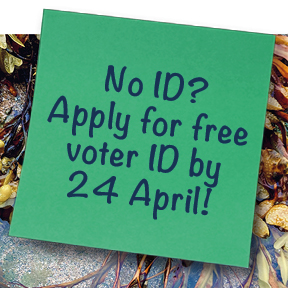What to do before, during and after a flood

It is important to prepare for flooding and the following information outlines steps that you can take before, during and after a flood that will help to keep yourself, your family and your colleagues safe during times of flooding.
Call 999 if there is a danger to life
Before a flood - Prepare
- Know who to contact and how – ensure you have important numbers saved in your phone and it has sufficient charge.
- Prepare your home – deploy any flood resilience or resistance measure you have to help prevent or reduce the impact of flooding e.g. flood board and airbrick covers.
- Keep up to date – follow the weather forecast and look for updates regarding Met Office and Environment Agency alerts and warnings.
- Insurance – ensure that you have suitable insurance to cover your building and contents from flood damage. Keep your documents on you or in a safe place.
- Utilities – ensure you know how to turn off your gas, electricity and water mains supply.
During a flood – Act
- The most important thing to do is to stay safe. Always listen to the Emergency Services and evacuate when told to do so.
- Stay informed – Listen to the radio and TV, check social media and use the Environment Agency’s Floodline on 0345 988 1188. For specific information on areas in Southampton use the following Environment Agency quick dial codes:
- For Southampton Water and Hamble call 216019
- For Mansbridge and Woodmill on the River Itchen call 316084
- For Tanners Brook call 216061
- Move items to higher ground – think about what could be damaged and move items upstairs (where possible) or raise them off the ground.
- Neighbours – help anyone nearby that you know may be less able, such as the elderly or disabled, but only if it is safe to do so, if not, make the emergency services aware.
- Flood kit – grab your flood kit and ensure it is always with you.
- Move your family and pets to safety – go upstairs or to higher ground where there is a means of escape.
- Flood water – avoid walking or driving through or near flood water. Stay away from low-lying areas. If you come into contact with flood water wash your hands regularly.
After a flood – Recover
You
- Take care – flood water can mask hidden dangers e.g. sharp objects, uneven surfaces, raised drain covers and pollution.
- Look after yourself – phone 111 if you have any non-urgent health concerns. Keep in contact with friends and family for support.
- Accommodation – stay with friends/family or ask your local authority or insurance company to help you find alternative accommodation if your home has been damaged by flood water.
- Make a plan – being flooded is an extremely stressful and emotional time. Make a plan to keep things manageable.
- Stay healthy – wash your hands regularly with clean water and soap. If there is no clean water, use wet wipes or hand sanitising gel.
Your property
- Check your property – if you are returning to your property, make sure it is completely safe and stable before entering.
- Utilities – do not turn on gas or electrics if they have been in contact with flood water. Only turn them on when they have been checked by a qualified technician.
- Insurance – if damage has occurred, call your insurance company (if you own your property) or your landlord (if you rent your property) to inform them of your current situation and follow their advice on what to do next. Make sure you take photographs of any damaged items prior to disposal.
- Ventilate - if you are drying your property naturally, keep doors and windows open as much as possible. If you are using portable indoor heating appliances, ensure there is good ventilation. Do not use petrol or diesel generators or other similar fuel-driven equipment indoors - the exhaust gases contain carbon monoxide which can kill.
- Food - do not eat food that has touched flood water. Do not eat fresh food from a fridge or freezer if your electricity has been turned off for more than 4 hours.
- Water – follow the advice from Southern Water regarding the safety of the water supply.
- Dispose of contaminated materials - dispose of used sandbags at your local tip or contact the environmental health department to get rid of sandbags and other things polluted by chemicals or sewage.


